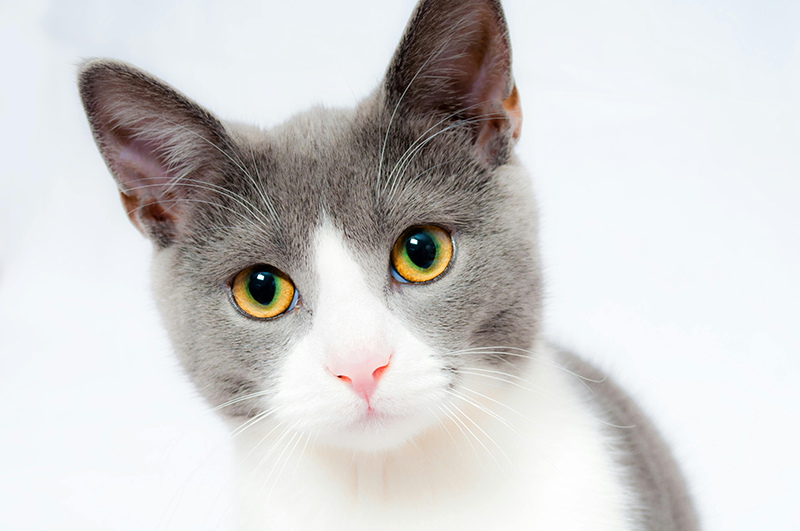ASPCA Animal Poison Control Shares Top Pet Toxins

Top 10 Poisons for Dogs, Top 10 Poisons for Cats &
Top 10 Deadliest Pet Poisons
March is Poison Prevention Awareness Month, and the respected ASPCA Animal Poison Control has shared the top toxins from its 2023 case data. It’s good to know about the most commonly-reported pet encounters with toxins, because those just may be the most likely for your pet to encounter in your home or in the environment.
Along with these common toxins, keep in mind that many more substances can be dangerous for your pet, such as these 15 Foods to Keep Away from Pets. Also, check out these resources Indoor Hazards for Pets and Outdoor Hazards for Pets.

ASPCA Animal Poison Control:
Top 10 Toxins for Dogs in 2023
In 2023, ASPCA Animal Poison Control recorded these toxins as topping their case list for dogs:
- Chocolate: Learn more about chocolate toxicity in dogs
- Grapes/Raisins: Discover why grapes are toxic to dogs
- Xylitol: Learn why xylitol is toxic to dogs
- Ibuprofen: This human medication should never be given to pets
- Bromethalin (Rat Poison): Sadly, if it kills rats, it can kill other mammals
- Marijuana: ASPCA reports this is a newer addition to the top 10 list. With Ohio’s recent election legalizing marijuana, pet owners should be especially mindful about stashing supplies away from animals
- Anticoagulant Rat Poison: Again, rat poison needs to be kept far away from pets. Preferably, pet owners will find other methods to manage rat problems
- Onions/Chives/Leeks/Shallots (Allium species): These sneaky ingredients find their way into almost all human recipes. Take care when feeding your dog leftovers.
- Vitamin D3 (supplement): Even “natural” medications like vitamins and supplements can be toxic to dogs. Keep all medicines, supplements and vitamins stored safely out of reach.
- Carprofen (pain medication): This particular medication is prescribed to dogs, often for osteoarthritis pain. Follow all veterinarian directions on giving it to your dog. Overdoses can cause organ failure.

ASPCA Animal Poison Control:
Top 10 Toxins for Cats in 2023
While there are some similarities in the ASPCA’s Animal Poison Control top 10 toxins for cats, we find some of those substances that are particularly dangerous for cats:
- Lilies: All lilies are extremely toxic to cats, causing liver failure. See the symptoms of plant toxicity in cats.
- Chocolate: It’s less well known that cats also suffer from chocolate toxicity. But it’s true that cats have easier access to counters, where chocolate candy is often stored.
- Onions/Chives/Leeks/Shallots (Allium species): Again, be mindful when sharing your food with cats. Meat cooked with these ingredients are tainted with the toxins.
- Garlic: Garlic is also in the Allium species, and is also a popular ingredient that can make its way into recipes.
- Ibuprofen: This human medication should never be given to pets.
- Vitamin D3 (supplement): Cat are curious and like to get into things. Keep this and all supplements shut away from their reach.
- Alstroemeria, Peruvian lily (Alstroemeria species): While not actually part of the lily family, these popular flowers are toxic to cats– and also commonly found in store-bought bouquets.
- Amphetamine combos (ADHD medication): Like with all medications, this toxicity can be avoided by having a secured medicine cabinet. Also, all human family members should learn the risks of letting cats access medications.
- Tulips (Tulipa species): Although they didn’t make the top 10 list, it’s worth knowing that other common spring flowers, like hyacinths and daffodils, are also toxic.
- Daylily (Hemerocallis species): Another flower that looks like a lily, isn’t a true lily, but is toxic to cats. When it comes to beautiful flowers, it’s best to be safe and keep them away from your cat.
ASPCA Animal Poison Control:
Top 10 Deadliest Toxins for Pets
Some of the common pet toxins aren’t necessarily deadly, depending on amount of exposure and timeliness of treatment (although, they can still affect your pet’s overall health and quality of life). These 10 toxins, on the other hand, are decidedly deadly. They aren’t common, and you may not have heard of some of them. That’s why we’re bringing awareness to them.
- 5-Fluorouracil: An ointment to treat skin cancer.
- Amphetamines: Both prescription and illicit drugs are equally dangerous for pets.
- Baclofen: A prescription muscle relaxer for humans that is life-threatening for small dogs.
- Calcium channel blockers: Common blood pressure medications, such as diltiazem, amlodipine, verapamil and nifedipine.
- Lamotrigine: Prescription human medication for seizure sufferers.
- 5-Hydroxytryptophan: An over-the-counter human supplement.
- Hops: The flower used to make beer.
- Metaldehyde: An ingredient in some slug and snail baits.
- Blue-green algae (BGA): A naturally-occurring algae that sometimes grows in lakes, ponds or rivers.
- Methomyl: An insecticide ingredient used in some fly baits.
Learn more about the top 10 deadliest toxins from the ASCPA Animal Poison Control.
We hope that a little bit of education will help you enjoy a wonderful and safe spring with your pet! See our Pet Toxins Resource page for more on the many toxic substances your pets may encounter in their world. As always, if you have a pet emergency in the Cincinnati area, give Grady Vet a call 24 hours a day at (513) 931‑8675.

